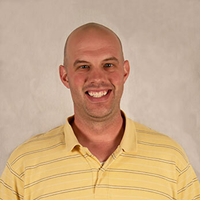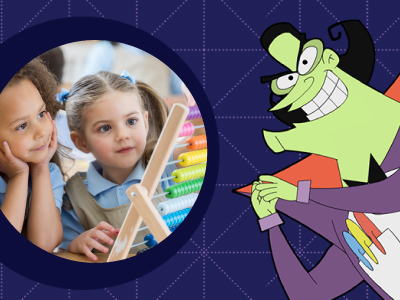Join live or receive a link to the recording and earn a CE certificate

edWebinars
«Back to all edWebinars- This event has passed.
Uncovering the Joy of Math: It’s Not What You Think
Wednesday, June 21, 2023 @ 2:00 pm - 3:00 pm EDT

Presented by Brandon Smith, Lead Mathematician and Product Director, MIND Education
Sponsored by MIND Education
Learn more about viewing the live presentation and the recording, earning your CE certificate, and using our new accessibility features.
There’s exciting science around what we find enjoyable. Spoiler: it’s not “fun” in an obvious way. What does enjoyment mean in the context of learning math, and why does it matter when teaching math? View this edWebinar to uncover the key to true enjoyment, how it amplifies learning, and how to design math experiences for students to intentionally produce it. By discovering what your students enjoy, you can harness this knowledge to create an engaging math experience that promotes deep conceptual learning.
This recorded edWebinar is of interest to PreK-8 teachers, school and district leaders, and education technology leaders.
 About the Presenter
About the Presenter
Brandon Smith is the Lead Mathematician and Product Director at MIND Education, where he creates experiential learning programs for people of all ages, both in and out of the classroom—including two that are patent pending. Over the past several years, he has focused on developing innovative projects to close what he calls the math “experience gap,” where children have insufficient exposure to math in their daily lives. Prior to joining MIND, Brandon was a college instructor, where he won an outstanding teacher award and was an educational liaison for the City of Costa Mesa to Windham, Australia. Brandon has a bachelor’s in math and two master’s degrees in pure and applied mathematics.
Learn more about viewing the live presentation and the recording, earning your CE certificate, and using our new accessibility features.
Join the Science of Learning Math community to network with educators, participate in online discussions, and receive invitations to upcoming edWebinars.
 MIND Education engages, motivates, and challenges students towards mathematical success through its mission to mathematically equip all students to solve the world’s most challenging problems.
MIND Education engages, motivates, and challenges students towards mathematical success through its mission to mathematically equip all students to solve the world’s most challenging problems.




